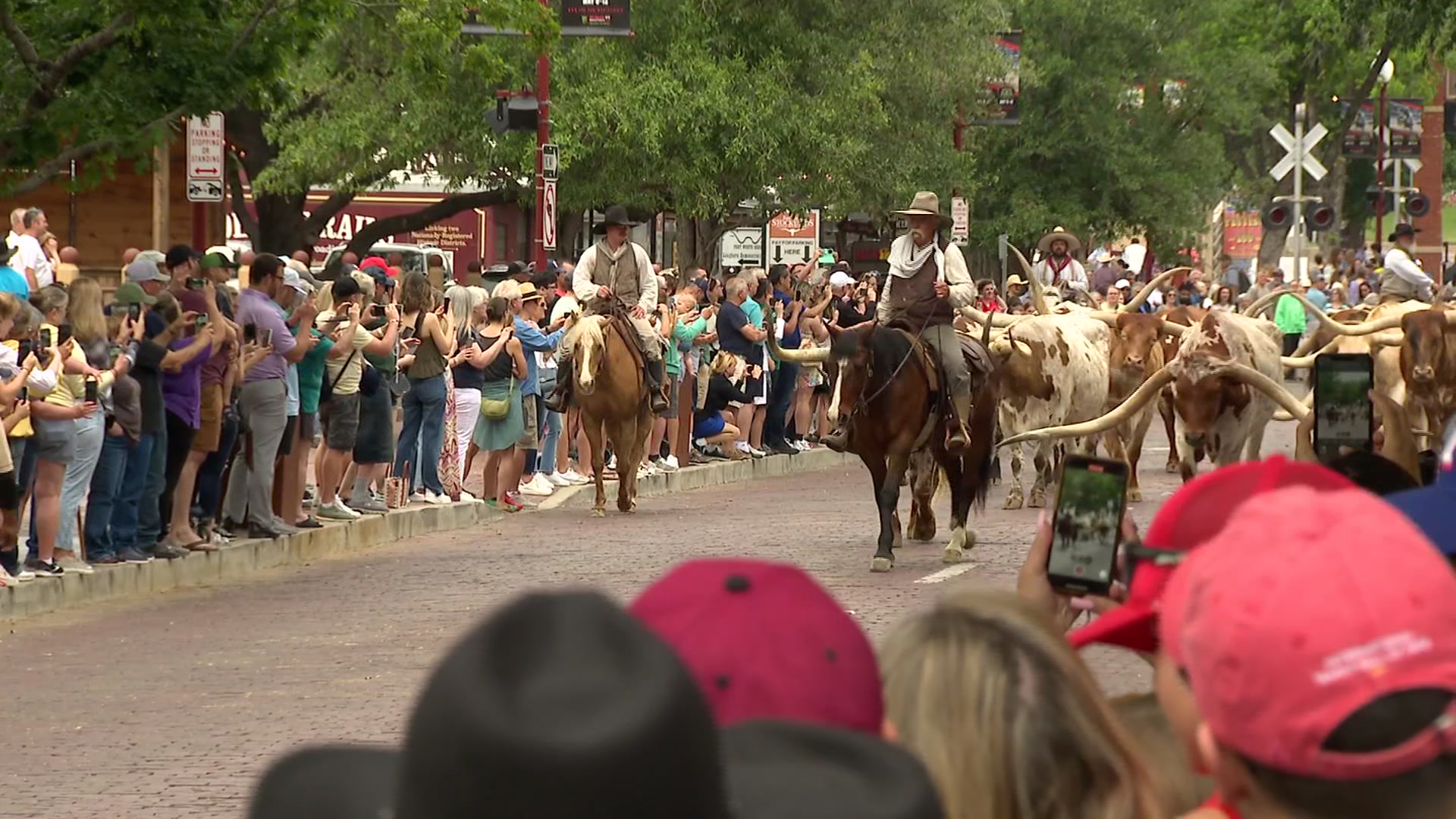It's been nearly a year since George Floyd was killed by a Minneapolis police officer. The weeks after his death were filled with anger, with sadness, with a loud call for change when it comes to the way police interact with Black people.
People of all races came together to protest police brutality and the unfair treatment of minorities. Floyd's death sparked a national movement and a mission of hope, specifically for two women.
They gathered the plywood murals that artists painted with messages of solidarity, portraits of Floyd, and demands for justice, and preserved them. This weekend, they will display 86 of those murals in Minneapolis for all to see.
The exhibit, which is called "Justice For George: Messages From the People," will be set up just a block from where Floyd died.
Get DFW local news, weather forecasts and entertainment stories to your inbox. Sign up for NBC DFW newsletters.
Floyd's death also had a major impact on the state of mental health in communities of color -- a topic that many don't talk about, but is so important. It is an uncomfortable but life-saving conversation.
Depression and anxiety spiked among Black Americans after George Floyd's death. We asked Fort Worth psychiatrist, Dr. Brian Dixon, about what changes, if any, he has seen over the past year, especially after former Minneapolis officer Derek Chauvin was convicted of murder and manslaughter of George Floyd.
"One of the things about the anniversary of celebrating George Floyd's life is that trauma did get a little bit of closure with the conviction of Derek Chauvin, so some people actually got some solace from that,” said Dixon. “The things that prompted those events in the first place, still remain unresolved, so while there is a bit of relief that justice seemed to be served, there's still all of the ongoing concerns about racism and wage inequality, and inequality in other areas, and so it's been a very conflicting time for a lot of people."
Local
The latest news from around North Texas.
Dixon says those conversations about systemic racism and the critical need for people to seek therapy and have those uncomfortable conversations are still very much needed.
U.S. News and World Report recently compiled data from several different studies into mental health in America and found higher rates of suicide among Black men, increased reports of depression among Black Americans after high profile incidents of police violence, and troubling statistics when it comes to treatment.
Black Americans are also less likely to seek mental health care. This issue can be traced to problems with access to care and perceptions about mental health care.
For many Black Americans, therapy is perceived as a sign of weakness. Dixon is fighting that misconception.
"I'd say one of the biggest misconceptions is that something is wrong with you. I tell people all the time, there's no such thing as crazy when you hear people say, 'oh my God that was so crazy, or you're crazy.' There's no such thing as 'crazy.' There are things like schizophrenia, things like depression, or bipolar, but there is not 'crazy,'" Dixon said.
"One thing for a lot of Black folks, is again, trauma, and if we are not actively treating the trauma, then we're missing out. We're literally walling ourselves from opportunity to live our fullest, our best lives," he added.
Dixon also stressed the importance for the Black community to find that support and get into therapy. He believes everybody needs a therapist because you're too close to yourself to be objective, to step outside of yourself.
It’s an important conversation, and one we will touch on again in the days ahead.
Next week NBC 5 will explore the impacts and changes across the nation and North Texas in the year since George Floyd's death. You'll hear from many voices who have called for change and continue to press for a better life for North Texans.



